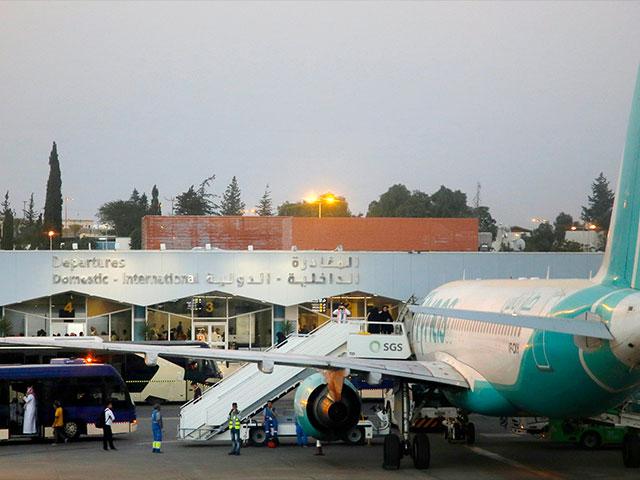
BAGHDAD (AP) — Explosive-laden drones that targeted Saudi Arabia’s royal palace in the kingdom’s capital last month were launched from inside Iraq, a senior Iran-backed militia official in Baghdad and a U.S. official said.
Speaking to The Associated Press this week, the militia official said three drones were launched from Iraqi-Saudi border areas by a relatively unknown Iran-backed faction in Iraq and crashed into the royal complex in Riyadh on Jan. 23, exacerbating regional tensions.
Attacks on the Saudi capital have been sporadic amid the kingdom’s yearslong war against neighboring Yemen’s Houthi rebels. Earlier this month, the rebels targeted an airport in southwestern Saudi Arabia with bomb-laden drones, causing a civilian plane on the tarmac to catch fire.
The Iran-aligned Houthi rebels, however, denied carrying out an attack that targeted Saudi Arabia’s Yamama Palace on Jan. 23.
The comments by the senior Iraqi militia official mark the first time an Iran-backed group has acknowledged that Iraq was the origin of the attack and points to the challenge Baghdad faces in halting attacks by Iranian-backed militia factions in Iraq.
It followed a responsibility claim allegedly issued by a little-known group called Awliya Wa’ad al-Haq, or “The True Promise Brigades,” that circulated on social media, calling it retaliation for a suicide bombing claimed by the Islamic State group in a main Baghdad shopping district on Jan. 21.
The militia official, speaking on condition of anonymity because he was not authorized to speak publicly about the attack, said the drones came “in parts from Iran and were assembled in Iraq, and were launched from Iraq.” He did not disclose where along the border the drones were launched and did not provide more details about the group claiming the attack.
Iran-backed groups have splintered significantly since the Washington-directed strike that killed Iranian Gen. Qassem Soleimani and Iraqi militia leader Abu Mahdi al-Muhandis in Baghdad more than a year ago. Both were key in commanding and controlling a wide array of Iran-backed groups operating in Iraq.
Since their deaths, militias have become increasingly unruly and disparate. Some Washington-based analysts argue the militias have become splintered only to allow them to claim attacks under different names to mask their involvement.
A U.S. official said Washington believes the Jan. 23 attack on the Yamama Palace was launched from inside Iraq. The official, speaking on condition of anonymity, did not elaborate or say how the U.S. came to this conclusion.
An Iraqi official speaking on condition of anonymity in line with regulations, said the U.S. intelligence was shared with Iraq’s government.
Launching a strike from Iraq would pose a challenge to Saudi air defense, now focused on threats from Iran to the northeast and Yemen from the south. Such drones also are small enough and fly low enough to the ground to not be picked up on radar.
The attack comes as Iraq seeks to deepen economic ties with Saudi Arabia and its Gulf allies over a variety of investment projects. Last week, President Barham Salih visited the United Arab Emirates and Foreign Minister Fuad Hussein visited Saudi Arabia this week, apparently to discuss the attack.
___
Associated Press writers Robert Burns in Washington and Samya Kullab in Baghdad contributed to this report.
The remainder of this article is available in its entirety at CBN

